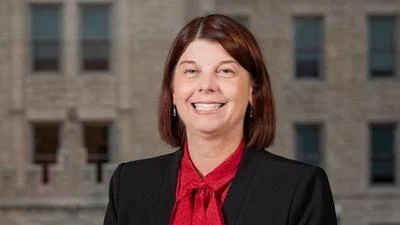City of Dekalb City Council and Finance Advisory Committee met March 14.
Here are the minutes provided by the committee:
The City Council and Finance Advisory Committee of the City of DeKalb, Illinois, held a Special joint meeting in the Yusunas Meeting of the DeKalb Public Library, 309 Oak Street, DeKalb, Illinois.
A. CALL TO ORDER
Mayor Barnes called the meeting to order at 5:00 p.m.
B. ROLL CALL
1. City Council
Recording Secretary Ruth Scott called the roll, and the following members of the City Council were present: Alderman Carolyn Morris, Alderman Barb Larson, Alderman Tracy Smith, Alderman Mike Verbic, and Mayor Cohen Barnes. Alderman Greg Perkins arrived at 5:01 p.m. Alderman Scott McAdams arrived at 5:16 p.m. Absent: Alderman Tony Faivre.
2. Finance Advisory Committee
Recording Secretary Ruth Scott called the roll, and the following members of the Finance Advisory Committee (FAC) were present: Linda Babcock, Jim Briscoe, Lance McGill, Chair Lynn Neeley, Ron Partch, and Tom Teresinski. Absent: Dytania Washington.
C. PUBLIC PARTICIPATION
There was none.
D. CONSIDERATION OF A DRAFT FINANCIAL PLAN FOR THE PERIOD 2022-2024
City Manager Nicklas provided opening remarks.
Finance Director Carrie Dittman then provided an overview of the draft Financial Plan 2022-2024, utilizing a PowerPoint presentation titled City of DeKalb Financial Plan Review 2022-2024, which touched on the following:
Key Revenue Highlights
▪ General Fund Revenues
▪ Property Taxes – This is the City’s most stable revenue source, as well as the largest source.
▪ Sales and Use taxes – This line item is where the City’s share of the 1% state sales tax is budgeted, as well as the City’s Home Rule Sales Tax.
▪ State Income Tax – This revenue is reported within our intergovernmental revenues line item.
▪ Other revenue sources include Gross Receipts Taxes, Licenses and Permits, Services Charges, Fines, and Other Income.
Finance Director Dittman then focused on two other revenue sources – The American Rescue Plan Act (ARPA) and the Staffing for Adequate Fire and Emergency Response Grant (SAFER) – which are one-time grants that will cease after 2024.
The ARPA grant is a federal grant was signed into law in March of 2021. The City received $10,422,954 in funds, which will be paid in advance. The first installment was received in 2021, and the second installment will be received in the early summer of 2022. Funds must be obligated by the end of 2024 and spent by the end of 2026. Since it’s a federal grant, there are specific spending requirements. Spending must fall into 66 subcategories, which include public health, negative economic impacts, services to disproportionately impacted communities, premium pay, infrastructure revenue replacement, and administrative. Within the revenue replacement category, up to $10 million can be spent on almost any governmental purpose, except for lump sum payments to a pension fund, debt service, legal settlements/judgments, and contributions to a “rainy day” fund.
Continuing, Finance Director Dittman stated that when the City was notified of the receipt of this grant, each category was reviewed to see where the money could best be spent. In FY2021, funding was directed to the rehiring public safety personnel, the purchase of the Hunter Hillcrest property for future redevelopment, Hunter Hillcrest tenant relocation, payments to other units of local government that didn’t receive ARPA funds (Kishwaukee Water Reclamation District and the DeKalb Park District), and lead service lines. Currently, $1,427,555 in funding has yet to be allocated.
The other grant the City was awarded this year was the SAFER grant, which is a federal grant through FEMA. The City was awarded $2,721,256, and unlike the ARPA grant, these funds are paid on a reimbursement basis. Expenditures can be incurred beginning February 27, 2022, and must be spent by February 26, 2025. Expenditures will be reimbursed for the base salary and partial benefits of nine new firefighters that have been hired since the fall of 2021 and February of 2022. Since this is only a three-year grant, beginning in 2025, the City will need approximately $1,000,000 in additional revenues annually to keep pace with those salaries.
Moving on, Finance Director Dittman provided information on General Fund Revenues to consider, starting with property taxes. Since 2014, the City’s property taxes have only been used to pay a partial amount of the Police and Fire pension contributions. No other City services are funded by property taxes. The City is projecting its EAV to grow exponentially over the next several years due to all the new development. With that, the City has been decreasing its tax rate every year. Even though the EAV is going up, the rate is going down, and the levy is slightly increasing each year.
At this point in the meeting, Mayor Barnes asked about additional monies the City must put towards the Fire and Police Pension fund. Finance Director Dittman responded via the information provided in the next portion of her report – Property Tax Collection vs. Pension Expense. Even though the City is putting the entire property tax levy towards pension contributions, there’s still a shortage each year between what the Actuarial Required Contribution (ARC) is and what the City is levying. This shortage will continue to grow because we’re increasing property taxes by a rate of about 4.95% with the levies. The pension contributions are growing at a rate of about 10% to 14% for the pension funds.
City Manager Nicklas spoke briefly about the City’s pension obligations and the funding difficulty it will face in the next three to four years.
Finance Director Dittman Carrie stated the largest piece of this is benefits, of which the City has no control since it’s set by state statute. The second largest is investment returns. Investments were once administered by local pension boards; however, legislation has passed and investments are now centralized by the state. Hopefully the result of that legislation will provide better investment returns.
The next portion of the overview covered General Fund Revenues to Consider - Income Tax. After the 2020 Census was certified, the City’s population was reduced from approximately 44,000 to 40,290, which deducted from this revenue source. The good news is that the City’s current budget was conservative, so even with the drop in population, the City is still at a level where it can meet or exceed FY2022’s expectations.
City Manager Nicklas then provided an overview of the City’s infrastructure. He stated that the City is struggling to come up with enough money on an annual basis to keep ahead of street repair costs that mount every year. The City’s annual repair costs just to keep pace with seasonal repairs should be around $3 million, and it’s at about $2.2 million now, but progress is being made. In order to deduce which streets throughout the city need repairs the most, the City will conduct a pavement condition index with some financial assistance from DSATS (DeKalb Sycamore Area Transportation Study).
Continuing, City Manager Nicklas then provided an overview a Future Additional Revenue Needs Summary that included policy considerations in order to acquire additional funding.
Property Tax. The City’s tax rate has declined for the past four years. The estimated 2021 rate (0.97235) is a decrease of 9.01% from the 2020 rate (1.06868). If the rate is dropped an additional 5% (0.9237), when applied to next year’s higher EAV (estimated at $8 million), the City would generate approximately $205,000 more in property taxes than the assumed $7.1 million levy. If the 2022 rate is maintained at the current tax rate, when applied to next year’s higher EAV, the City would generate about $595,000 more in property taxes than the assumed $7.1 million. It is recommended that the 2022 tax rate be set somewhere in between.
Cannabis Tax. The City passed a Municipal Cannabis Retailers’ Occupation Tax of 3%, however, the City currently doesn’t have an operating dispensary in town, but there are interested parties, with two areas within DeKalb being identified as potential sites. It is estimated that one dispensary would generate $250,000 to $400,000 from the 3% tax annually.
Gas Tax. The City currently imposes a 9.5 cents per gallon local motor fuel tax, which generates about $1.2 million annually. An additional 1 cent per gallon tax would generate about $135,000 annually. This option was not recommended.
Infrastructure Investment and Jobs Act – Infrastructure Grants. This act increased funding levels to many existing infrastructure programs, however, these are all competitive grant opportunities the City will have to apply for. This will ultimately generate the possibility of $949,000 in funding.
Home Rule Sales Tax. Home rule sales tax applies to all purchases of goods excluding food, drugs, and licensed personal property purchases, such as vehicles. The City’s current home rule sales tax rate is 1.75%. This option was not recommended.
City Manager Nicklas continued, stating he thinks progress can be made toward the street maintenance budget, but there’s anxiety about what pricing is going to be. Further, the City has been stockpiling for major bridge repair, beginning with the N. First Street bridge and the Lucinda Street bridge. Both will be substantially funded by state and federal sources.
It’s unknown what some of the 2021 EAV rates will be, but in the plan as presented, it’s projected that over the next two fiscal years a continuation of what was done this year and last year, which was to increase the levy by about 4.95%. With the EAV rising, we can still gain some increase in the levy, which helps but it all goes into the pension costs.
Referencing a handout titled Flatline City Tax Rate provided to the City Council and FAC, City Manager Nicklas stated another thing to think about would be to flatline the levy rate.
Mayor Barnes asked if the levy is increased by 4.95% as projected, and if the property tax rate is flattened, is there potential to meet the increased pension obligations. City Manager Nicklas replied that we’d still far short but not by as much.
Alderman Verbic thanked City Manager Nicklas and City staff for the report.
Mr. Teresinski also offered thanks, stating this is a major step forward just to be talking about the future. He further stated he’s looking forward to discussing the options provided. (Due to audio/mic issues, not all of Mr. Teresinski’s comments could be understood.)
City Manager Nicklas briefly touched on information provided on pages 48 and 49 of the Financial Plan.
Mayor Barnes said that he and City Manager Nicklas are planning to visit with each taxing body to figure out how as a community the aggregate tax rate can be driven down.
Alderman Verbic stated that the different taxing bodies have different needs, noting that while the City’s population dropped by 9%, the school district’s enrollment went up 12%.
Mayor Barnes agreed, stating that hopefully with insane amount of new EAV brought to the community, those additional dollars will be taken into consideration.
Mr. Teresinski provided observation regarding pension obligations over the last 12 years. (Due to audio/mic issues, not all of Mr. Teresinski’s comments could be understood.)
Mayor Barnes stated there’s no way the City or any other municipality faced with the same sort of deficit will be able to shoulder the pension burden on their own. The state legislature is going to have to make some changes.
Brief discussion ensued.
City Manager Nicklas offered information regarding the need to increase the number of police and fire staff to meet the rising demands of service to the community.
Mayor Barnes asked about final numbers and a finalized Financial Plan. City Manager Nicklas replied that the plan will be refreshed as numbers come in, which will assist with making some policy decisions.
Mayor Barnes stated that if the City can come up with $800,000 in new revenue, it would cause us to not have to raise taxes.
There was no further discussion.
E. ADJOURNMENT
MOTION: Alderman Larson moved to adjourn the City Council; seconded by Alderman Perkins.
VOTE: Motion carried by a voice vote of the majority of Council members present. Aye: Morris, Larson, Smith, Perkins, McAdams, Verbic, Mayor Barnes. Nay: None. Absent: Faivre.
Mayor Barnes declared the motion passed and adjourned the City Council portion of the meeting at 5:55 p.m.
MOTION: Ms. Babcock moved to adjourn the FAC; seconded by Mr. Briscoe.
VOTE: Motion carried by a voice vote of the majority of FAC members present. Aye: Babcock, Briscoe, McGill, Neeley, Partch, Teresinski. Nay: None. Absent: Washington.
Chair Neeley declared the motion passed and adjourned the FAC portion of the meeting at 5:55 p.m.
https://www.cityofdekalb.com/AgendaCenter/ViewFile/Minutes/_03142022-2150





 Alerts Sign-up
Alerts Sign-up